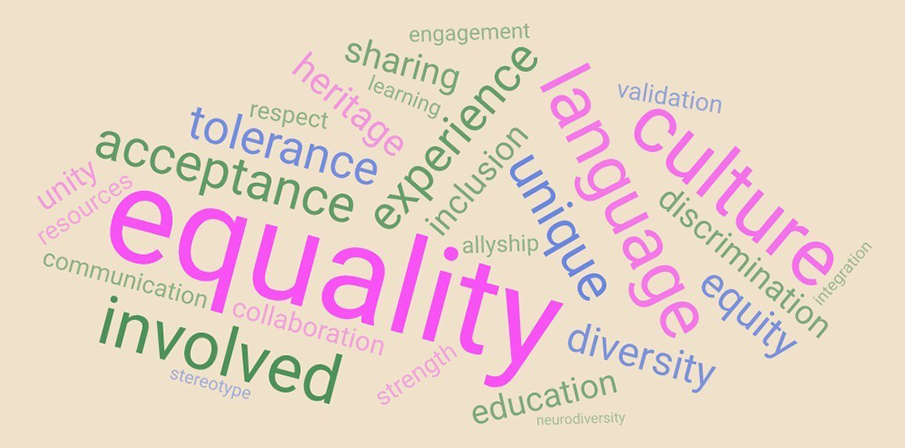11 February 2022
There is a saying that I like to use: if you want to welcome people to the mining industry, be welcoming. I suppose that this axiom could also be applied to new technologies or ideas. If only it were as simple as that.
On January 26, 2022, CIM hosted two separate events. The first, titled What will it take to keep women in mining? was hosted by the Management & Economics Society (MES) Discussion Group. As an audience member, I can personally attest to how superb the panelists were. Later that evening, CIM’s Diversity and Inclusion Advisory Committee (DIAC) held a Town Hall called How Do You D&I? I was the webinar moderator and was looking forward to facilitating an important discussion and hearing from an excellent group of speakers we assembled from Cameco, Vale, Sherritt, and the CIM.
Sadly, both events were hijacked by hackers who shouted vulgar words over the speakers, wrote repulsive messages and posted upsetting videos. Both events ended abruptly, though they will be presented again at a later date (with more stringent IT security measures).
After the events, I and many others were contacted by numerous people via e-mail and text. I have seen reactions to the hijacking on LinkedIn and Twitter. Some of those who reached out were participants, while others had heard about the events from colleagues and friends. The opinions expressed were as varied as the number of people at the Town Hall. Some thought the hackers were being puerile whilst others felt inconvenienced. Many people, including myself, were deeply impacted. Some brought up references to the École Polytechnique massacre of 1989. Some mentioned the London, Ontario truck attack on a Muslim family. Others brought up traumatic reactions to the mass graves found at Canadian Indian Residential Schools. Unfortunately, there is no shortage of heinous crimes committed against marginalized communities in Canada or elsewhere around the world. Some people were reminded about tragic events that happened to them personally, either recently or from their past. All the feelings and emotions these events triggered are valid.
I have been personally involved in D&I or DE&I activities for many years. I am a founding member of CIM’s DIAC Committee. I am a part of Sherritt’s initiatives in this area. I organize a webcast series for Sherritt called Bits & Bytes where I try to give a platform to speakers like Kelly Bron Johnson on topics such as neurodiversity in mining. As a cisgender white male in mining, people often ask me why I care so much. Why do I devote so much of my time to this cause? I freely acknowledge that I personally do not face the same struggles as visible minorities do. I can only empathize with the discrimination and hardships marginalized communities face in our society.
I do, however, have a personal connection to the subject. In the early 1900s, my maternal grandparents fled the pogroms of Eastern Europe and moved to Montréal where they met and later married. I recall as a young child, the multitude of times the neighbourhood kids following my grandfather down the street and yelling vulgarities at him. They did not consider that he was a just, caring and kind human being who was just eking out a living. To them, he was just a “meme”. I can remember many similar events and how despondent this made me feel. I also remember the unfounded assumptions made about my grandmother. She arrived from Minsk and looked like a refugee from Europe. I remember her looking that way her entire life, which set her apart from the locals.
But I do not stand out as a visible minority. I consider myself a minority, not noticeably visible but who can blend in with the majority. Over the years, I have endured a lot of shocking statements made by people do not know of my ethnic background. It provided me some insight into how some people regard those considered “others”. Most of the people I encounter are kind and welcoming. But dishearteningly, there is a small proportion of the population who would do my family and I harm simply because of who they assume we are.
When I read about the Nova Scotia chocolatier (and his family) who came to Canada as a Syrian refugee and is now a successful businessman and becoming a Canadian citizen, it brought a tear to my heart. Similarly, there is the uplifting story of the owner of Paramount Fine Foods who fled Lebanon as a teenager, and who is now being honoured with the Order of Canada. I am sure we can all name many great women and men who have contributed to the fabric of Canadian society. There was a recent heartwarming story on TV about a group of girls who fled Afghanistan and are now building snow forts in Saskatoon. All they want is a chance to receive an education and succeed in life. Potentially, someday they will want to work in our industry, and hopefully find a job in mining where they will be welcomed and accepted. It truly upsets me when people are denigrated for no other reason than their gender, race, ethnicity, sexuality, class, religion, disability, beliefs, the way they think or other personal expressions. To me, it is deeply personal.
Which brings me back to the unfortunate events of January 26th. I was angered. I was upset. CIM is a volunteer-based organization, and a lot of people give up their personal time to organize and participate in its activities. Numerous people give up their time to organize and participate in our events. We are a community that is passionate about many aspects of mining, from tailings to EH&S issues and yes, even the advancement of Diversity, Equity and Inclusion initiatives. To have a small group of hackers disrupt these events was certainly unjust, and it deeply affected people attending these events and within mining in general.
A few years ago, a female geologist friend of mine posted something on social media about the #MeToo movement in mining. It was about her personal experience at an exploration camp. The first several reactions were negative. I remember being upset, but not surprised. I guess it’s easy being a troll or a hacker when you can hide behind a computer screen. But then something wonderful and important happened. Hundreds of people contributed their own, similar experiences. They offered support and allyship, and they quickly drowned out the trolls and negativity. I found this reassuring. I am not a female geologist. This will not happen to me. I can never truly feel her pain. But I can do my best to educate myself, to empathize, and help make sure these incidents are not repeated in the future.
These hackers will not deter me, and I remain 100% committed to the cause. I am as excited as ever to continue these important conversations with you at future meetings.
Nathan M. Stubina, V.P. Technologies, Sherritt International
 - dev.png)


